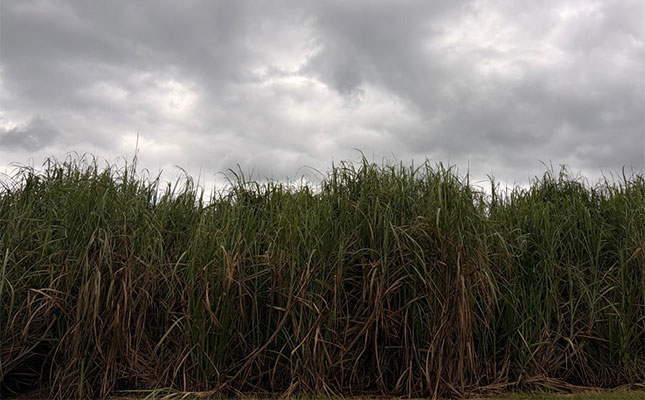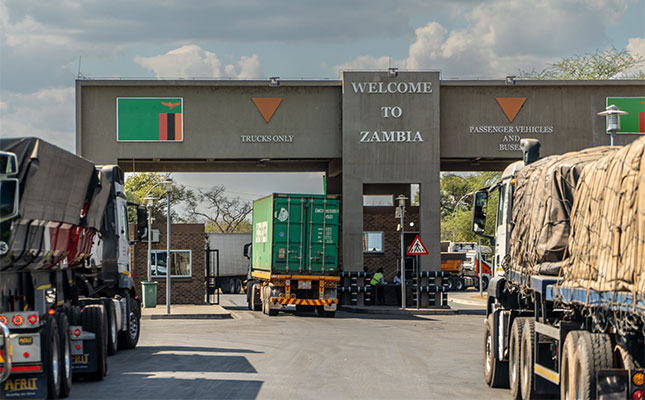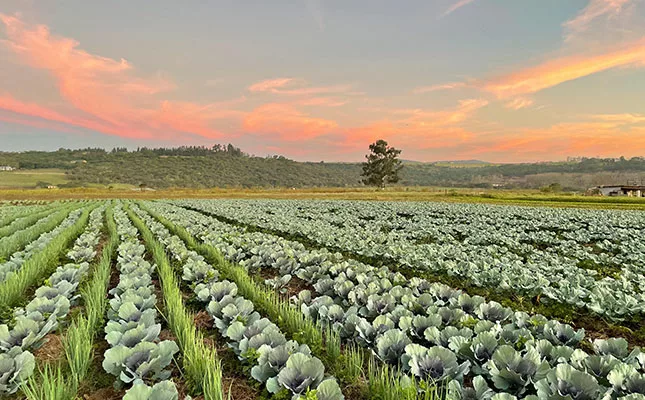
Shakti Satyapal has spent the past five years in a state of transition. This has not only been a personal shift from a corporate career to that of a fully-fledged vegetable farmer, but also a process of evolving the ailing family farm into a successful business.
Further to this has been the shift from conventional to regenerative farming.
“It has been an opportunity to take what my father developed over many years and try to build and improve on that. The journey has also been about trying to get to a space where we can provide a blueprint to help other farmers transition to regenerative agriculture,” says Satyapal.
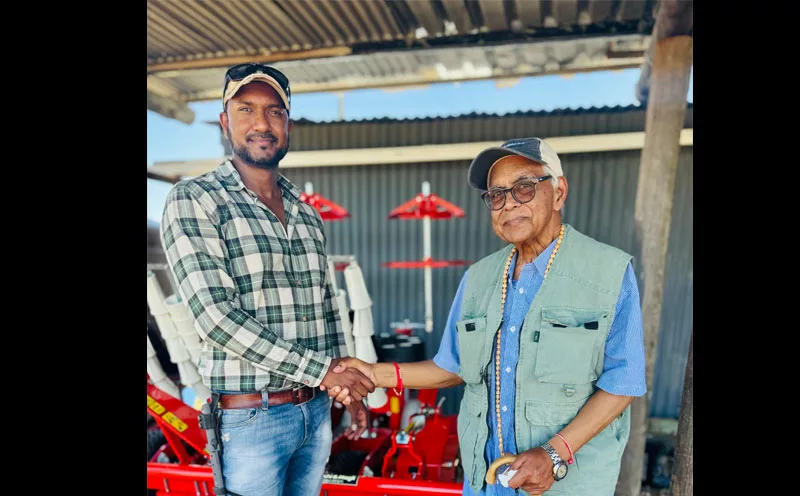
Weathering the perfect storm
Satyapal heads up Roadway Farms, the family farming operation, in partnership with his father, Prakash, and sister, Prishani.
The 26ha farm, where they produce a variety of vegetable crops throughout the year, is located on the banks of the Umgeni River along the R33 near Pietermaritzburg in KwaZulu-Natal (KZN).
The farm has been in the family since Satyapal’s father purchased it in the 1990s.
Although he has been exposed to agriculture and rural environments throughout most of his life, Satyapal only really began farming in earnest a little more than five years ago. After finishing school, he pursued a career in advertising and strategic marketing services, working with major clients like SAB and BMW.
He eventually became frustrated with the industry and its general lack of social responsibility, so in 2013 he joined his sister in a company she had founded called Sustainability Truthing, focusing on driving sustainability projects and initiatives.
It was while they were working together that the matter of the family farm came up for discussion. It was struggling, and Satyapal says his dad had considered selling it.
“Both my sister and I said we would find a way to make it work,” he adds.
This happened in 2019. The following year, COVID-19 hit, creating a near-perfect storm alongside a host of other challenges.
“It really was challenging; it was diabolical. Everything that could go wrong did,” explains Satyapal.
In that first year of operations, they were hit by a global pandemic that resulted in various restrictions and shortages, with the riots and looting in July 2021 also causing challenges.
This was exacerbated by war half a world away, with the tensions between Russia and Ukraine affecting the cost and availability of fertiliser and other chemical inputs like pesticides.
“On top of that, we had flooding. We have had flooding in KZN every year for the past five years,” he adds.
Ground-up approach
Despite all of these and other hurdles, the family has steadily transformed the farm from a struggling business into one that’s thriving and expanding.
The first step was to step back, reduce production, and address infrastructure shortfalls.
Satyapal says the business had already been in a “challenging” state when he took over. This was exacerbated by the macro-geopolitical, economic, and climate challenges and further complicated by micro-level issues.
“We were starting off from a low base. We had problems with infrastructure, tractors that weren’t working, and irrigation pipes that were in bad shape,” he explains.
At this stage, they decided to first scale down production to address the systemic issues. Satyapal says farming the way they had been doing it was too expensive, with efforts focused on costs rather than revenue.
“We had to pause for a while, take a step back from full production, and reassess [our practices].”
During this period, they invested personal capital to pay the bills and improve infrastructure. This included having spare parts engineered for tractors that weren’t working.
This year and last, they have continued to make progress with the help of funds from government’s Comprehensive Agricultural Support Programme.
“In a relatively short time, we managed to get the tractors sorted out, upgrade our irrigation systems, recondition our implements, and get the tools necessary to farm more efficiently.
“Once the basics were fixed, our work became more efficient,” explains Satyapal.
It was also during this process that he fell truly, madly in love with the work he was doing.
A passion for food
When asked what exactly he fell in love with, Satyapal says it was being on the ground and being able to really understand how food was grown.
“It is innately part of us. Once you understand this, it really becomes part of who you are.
“[It is about] understanding the quality of food and your relationship with nature, from the microbes in the soil to the cosmos.”
Satyapal says his entire family is passionate about food: “It is always one of the most rewarding feelings to get a good harvest out.”
READ Natural fertilisers for vegetables
Speaking about the bigger picture, he highlights resource preservation, saying many conventional agriculture practices are damaging the most important resource, namely soil.
“If you look at the use of fertilisers, [other] chemicals, and monocropping, continuing these practices will deplete the [soil] to the point where it is no longer useable,” he says.
The system he is introducing on the farm focuses not only on taking from the soil but also on putting back and building it up over time. He says soil preservation is important in the quest to grow food, with the regeneration of ecosystems playing a key role in the bigger picture.
In moving towards a more sustainable future, he gives a practical example with fertiliser, saying it is an input that’s sensitive to global forces that are beyond a farmer’s control. At Roadway Farms, they have begun transitioning from synthetic fertilisers to locally sourced organic options.
The next step is to make their own fertiliser on-farm. While this won’t happen overnight, it is a strategic move that further aligns with their sustainability-based model.
Production basics
Roadway Farms currently produces spinach and cabbage throughout the year, as well as specific summer and winter vegetables.
“Winter crops include broccoli, cauliflower, lettuce, red leeks, spring onions, and some herbs.
“In summer, we grow okra, chillies, green beans, dry beans, butternut, some Indian vegetable varieties, brinjals, a summer lettuce, green [maize], and more.”
Roughly half of their production takes place on family-owned land and the remaining half on leased land. They have been expanding production but don’t use all land at all times.
“There is some land in summer that we cannot use, as it just holds too much water and is basically a floodplain,” explains Satyapal.
About 80% of the land is under production at any given time, with rotation practices that use cover to rehabilitate the soil. Crop rotations also allow for reduced chemical use in pest management wherever possible.
They use a combination of mechanisation and manual labour, depending on the crop being planted.
The family has invested in a new tractor and a seedling transplanter, mainly for use in planting cauliflower, broccoli, and chillies. They also use a bedformer alongside the planter.
“It will be interesting to see this summer how much protection this gives us against the rain and how the raised beds help the crops withstand flooding,” says Satyapal.
Irrigation is done by means of an overhead sprinkler system, with water drawn directly from the Umgeni River.
They have recently also erected a packhouse, which will assist in adding value to their own produce. This also forms part of a strategy to minimise risk, as it enables them to buy in produce from other growers if they have production shortfalls.
At this stage, Roadway Farms’ client base includes retail outlets, wholesale buyers, and ‘bakkie traders’.
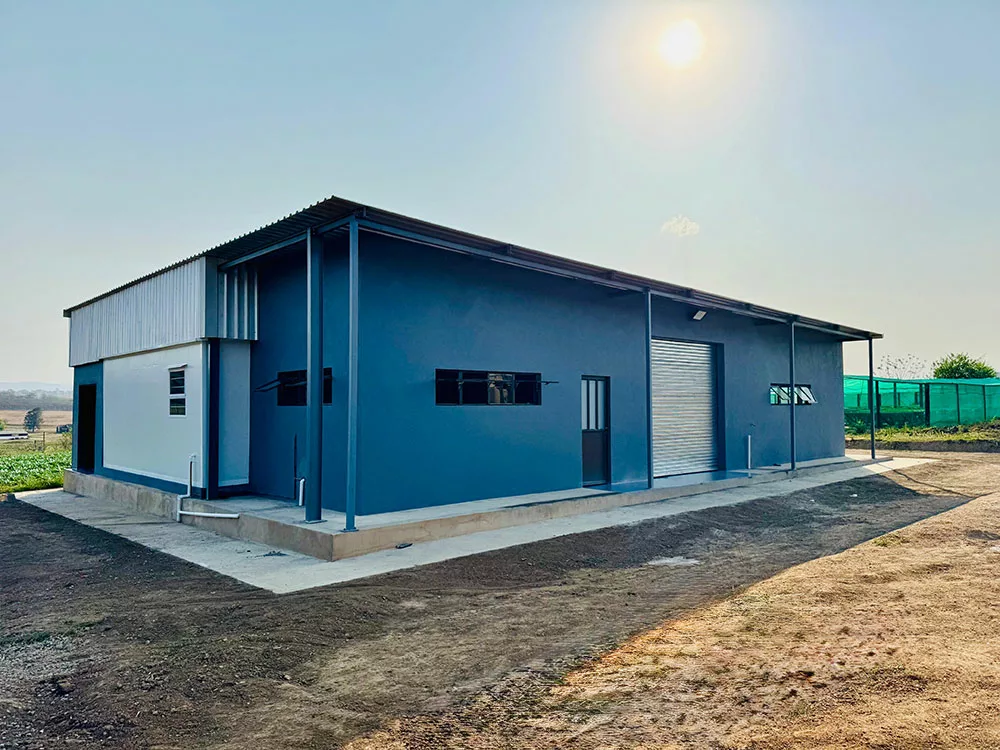
When a thriving business meets market realities
Crop production is one of those industries where, even when a farmer does everything by the book and produces premium-quality produce, market forces beyond their control can force them to sell below cost.
Satyapal says the business recently experienced such a turn, with cabbages, for example, generally priced between R3,00 and R5,00/head. If they only receive a low price of R3,00, this is below the average production cost of R3,50 to R4,50/head.
“The market price has absolutely tanked, and we’ve basically been selling at a loss, if we’ve been selling at all,” he adds.
Outside the farm, he and his sister continue their work in sustainability consulting, including consultations with government and agriculture role players. One idea they continue to champion is the digitisation of data to enable farmers to plan more effectively and minimise risks such as market supply challenges.
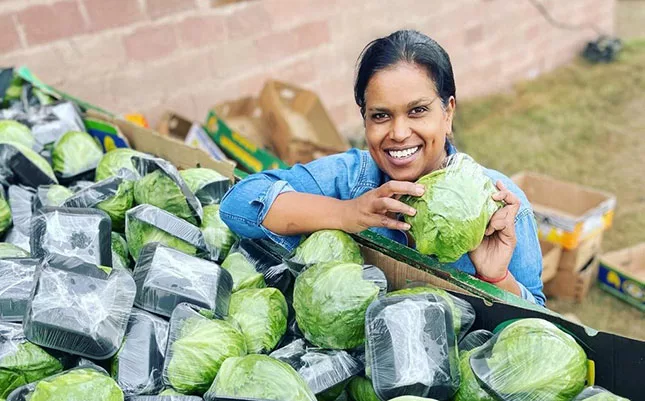
For example, Satyapal says provincial agriculture departments already have databases of registered farmers who receive support through extension services. His suggestion is to digitise this and update it with relevant monthly data, such as fertiliser use, diesel purchases, and hectares being ploughed.
“If I want to plant cabbage in October, I can check [the database to see] what happened in the surrounding areas in KZN. If I see there was excessive cabbage hectarage, I can hold back or choose another cash crop, as there may be a crash in the market,” he explains.
Satyapal says this will be challenging until enough data has been accumulated, but he sees it as a mechanism with the potential to prevent the kind of oversupply challenges they are currently facing.
He adds that this type of planning tool is essential, not only for tracking produce but also for helping farmers run their businesses more efficiently.
Phone Shakti Satyapal on 082 562 6864, or email [email protected].
Get trusted farming news from Farmers Weekly in Google Top Stories.
➕ Add Farmers Weekly to Google ✔ Takes 10 seconds · ✔ Remove anytime
